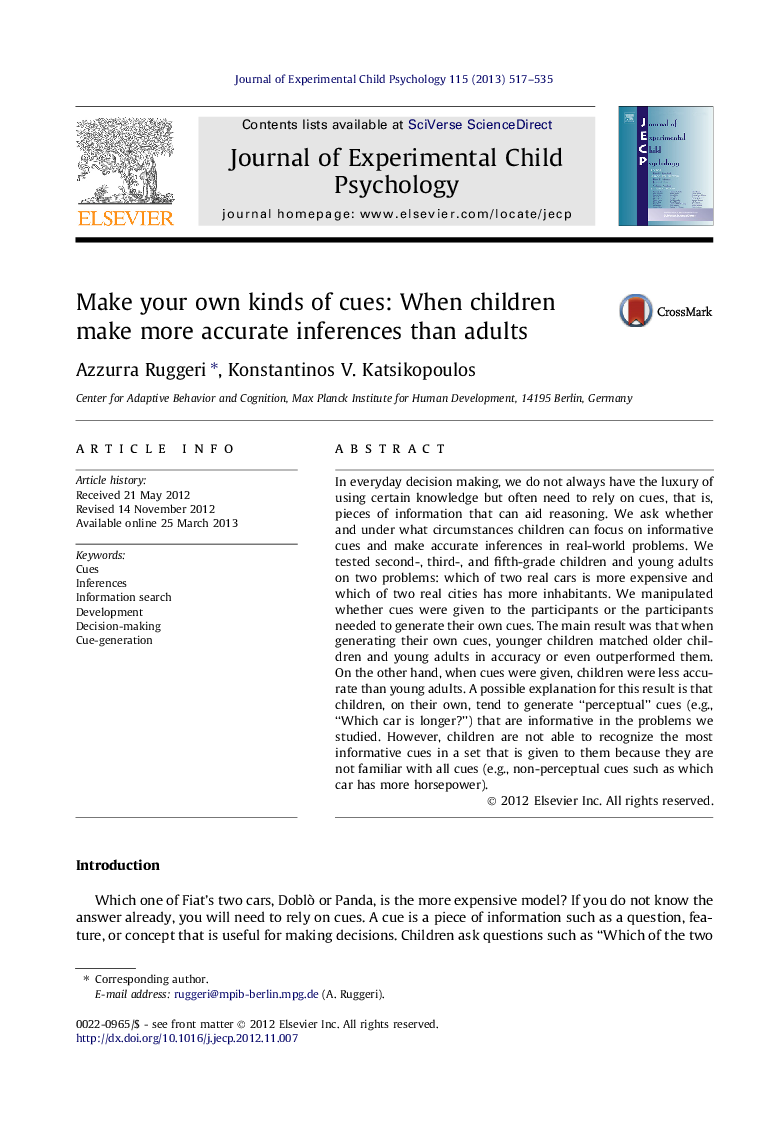| Article ID | Journal | Published Year | Pages | File Type |
|---|---|---|---|---|
| 918136 | Journal of Experimental Child Psychology | 2013 | 19 Pages |
In everyday decision making, we do not always have the luxury of using certain knowledge but often need to rely on cues, that is, pieces of information that can aid reasoning. We ask whether and under what circumstances children can focus on informative cues and make accurate inferences in real-world problems. We tested second-, third-, and fifth-grade children and young adults on two problems: which of two real cars is more expensive and which of two real cities has more inhabitants. We manipulated whether cues were given to the participants or the participants needed to generate their own cues. The main result was that when generating their own cues, younger children matched older children and young adults in accuracy or even outperformed them. On the other hand, when cues were given, children were less accurate than young adults. A possible explanation for this result is that children, on their own, tend to generate “perceptual” cues (e.g., “Which car is longer?”) that are informative in the problems we studied. However, children are not able to recognize the most informative cues in a set that is given to them because they are not familiar with all cues (e.g., non-perceptual cues such as which car has more horsepower).
► Providing participants with a fixed set of cues from which to choose handicaps children. ► When generating their own cues, participants are more frugal. ► When generating their own cues, younger children match older children and young adults in accuracy. ► Younger children generate as informative cues as those generated by older children and young adults.
